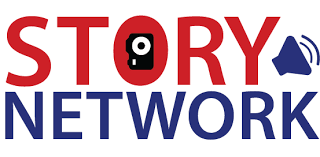Navigating the complex world of business taxes is a crucial aspect of entrepreneurship. Understanding and effectively managing business taxes can help entrepreneurs optimize their financial operations, ensure compliance, and minimize tax liabilities. This detailed report provides essential tips and insights to help entrepreneurs navigate the intricacies of business taxes, empowering them to make informed decisions and maximize their tax benefits.
Essential Tips for Entrepreneurs to Navigate the Tax Landscape
Know Your Tax Obligations
This section highlights the importance of understanding the various tax obligations that entrepreneurs may encounter. It covers key taxes such as income tax, self-employment tax, sales tax, payroll tax, and business property tax. Entrepreneurs will gain insights into the specific tax obligations applicable to their business structure and industry, ensuring compliance and avoiding penalties.
Choose the Right Business Structure
Selecting the appropriate business structure can have significant implications for tax purposes. This section explores the different business structures, including sole proprietorship, partnership, corporation, and limited liability company (LLC). It discusses the tax implications associated with each structure, such as pass-through taxation, double taxation, and liability considerations. Entrepreneurs will learn how to choose a business structure that aligns with their tax goals and overall business objectives.
Maintain Accurate Financial Records
Maintaining accurate and organized financial records is crucial for effective tax management. This section discusses the importance of proper bookkeeping and record-keeping practices. It covers essential financial documents, such as income statements, balance sheets, receipts, and expense records. Entrepreneurs will gain insights into utilizing accounting software, hiring professional bookkeepers, and implementing systems to streamline their financial record-keeping processes.
Understand Deductible Business Expenses
Identifying and maximizing deductible business expenses can significantly reduce taxable income. This section provides an overview of common deductible expenses, including office rent, employee salaries, business travel, marketing expenses, and equipment purchases. Entrepreneurs will learn how to differentiate between personal and business expenses, adhere to IRS guidelines, and leverage available deductions to minimize tax liabilities.
Stay Updated with Tax Laws and Regulations
Tax laws and regulations are subject to frequent changes, making it crucial for entrepreneurs to stay updated. This section emphasizes the importance of staying informed about tax updates, new regulations, and filing deadlines. It explores reliable sources for tax information and highlights the benefits of consulting with tax professionals or hiring an accountant. Entrepreneurs will gain insights into developing a proactive approach to tax compliance and ensuring they remain up to date with any changes that may impact their business.
Plan Strategically for Estimated Taxes
Entrepreneurs are often required to make estimated tax payments throughout the year to cover their tax obligations. This section provides guidance on estimating tax payments, calculating tax liabilities, and developing a strategic tax planning approach. It discusses techniques for managing cash flow, leveraging tax credits and deductions, and avoiding underpayment penalties. Entrepreneurs will gain insights into aligning estimated tax payments with their business’s financial performance.
Seek Professional Tax Guidance
Navigating business taxes can be complex, and seeking professional tax guidance is invaluable. This section emphasizes the benefits of working with tax professionals, such as accountants or tax advisors. It explores the role of tax professionals in providing guidance, preparing tax returns, conducting tax planning, and representing entrepreneurs during IRS audits. Entrepreneurs will gain insights into finding the right tax professional and leveraging their expertise to optimize their tax strategies.
